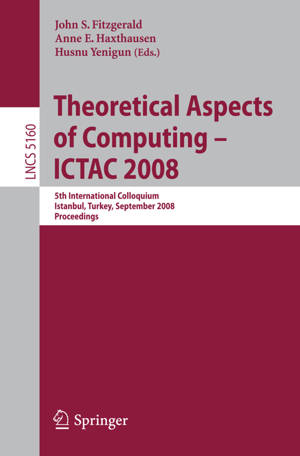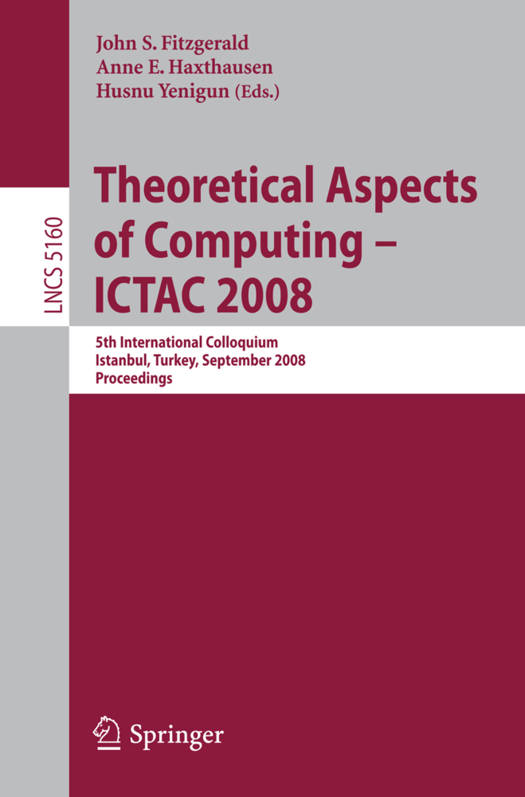
- Retrait gratuit dans votre magasin Club
- 7.000.000 titres dans notre catalogue
- Payer en toute sécurité
- Toujours un magasin près de chez vous
- Retrait gratuit dans votre magasin Club
- 7.000.000 titres dans notre catalogue
- Payer en toute sécurité
- Toujours un magasin près de chez vous
Theoretical Aspects of Computing - ICTAC 2008
5th International Colloquium, Istanbul, Turkey, September 1-3, 2008, Proceedings
52,95 €
+ 105 points
Description
Research on theoretical aspects of computing has a direct impact on the pr- tice of computer systems development. Over many decades, fundamental t- ories have emerged to describe functionality, temporal behavior and resource consumption. Theories of application domains are beginning to be exploited for modelling and analyzing intended computing systems before the expensive c- mitment is made to real programs and hardware. Recent years have seen major improvements in the cost-e?ectiveness of tools supporting the exploitation of theories through proof, model-checking and testing. Against this encouraging background, we are pleased to present papers that show something of the live- ness and diversity of research in theoretical aspects of computing today. ICTAC 2008, the 5th International Colloquium on Theoretical Aspects of Computing, was held on 1-3 September 2008 in Istanbul, Turkey, hosted by - banc? University. The ICTAC series was founded by the International Institute for SoftwareTechnologyof the United Nations University(UNU-IIST). It brings together practitioners and researchers from academia, industry and government to present results and to exchange ideas and experience addressing challenges in both theoretical aspects of computing and in the exploitation of theory through methodsandtoolsforsystemdevelopment. Theseriesalsopromotescooperation in research and education between participants and their institutions, from - veloping and industrial countries, in accordance with the mandate of the United Nations University. The previous ICTAC colloquia were held in Guiyang, China (2004, LNCS 3407), Hanoi, Vietnam (2005, LNCS 3722), Tunis, Tunisia (2006, LNCS 4281) and Macau SAR, China (2007, LNCS 4711).
Spécifications
Parties prenantes
- Editeur:
Contenu
- Nombre de pages :
- 455
- Langue:
- Anglais
- Collection :
- Tome:
- n° 5160
Caractéristiques
- EAN:
- 9783540857617
- Date de parution :
- 18-08-08
- Format:
- Livre broché
- Format numérique:
- Trade paperback (VS)
- Dimensions :
- 155 mm x 234 mm
- Poids :
- 703 g






